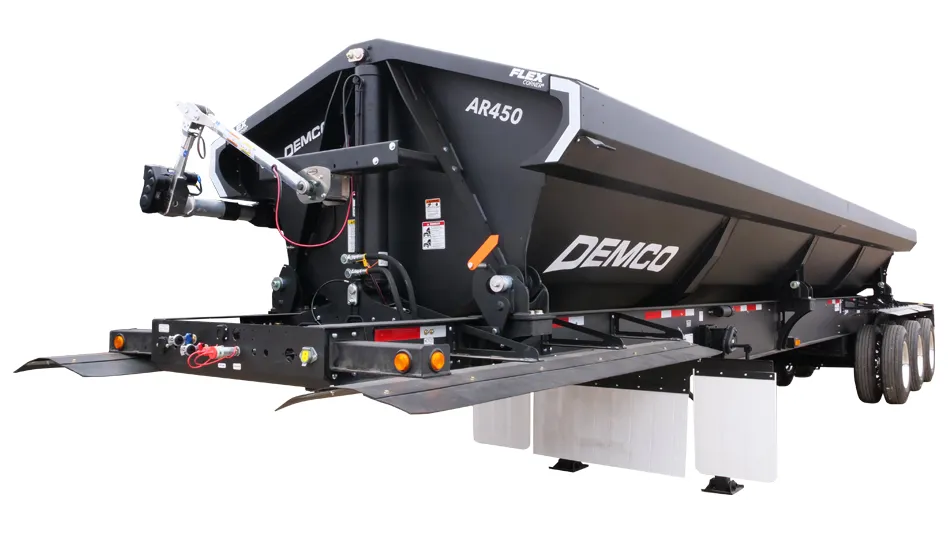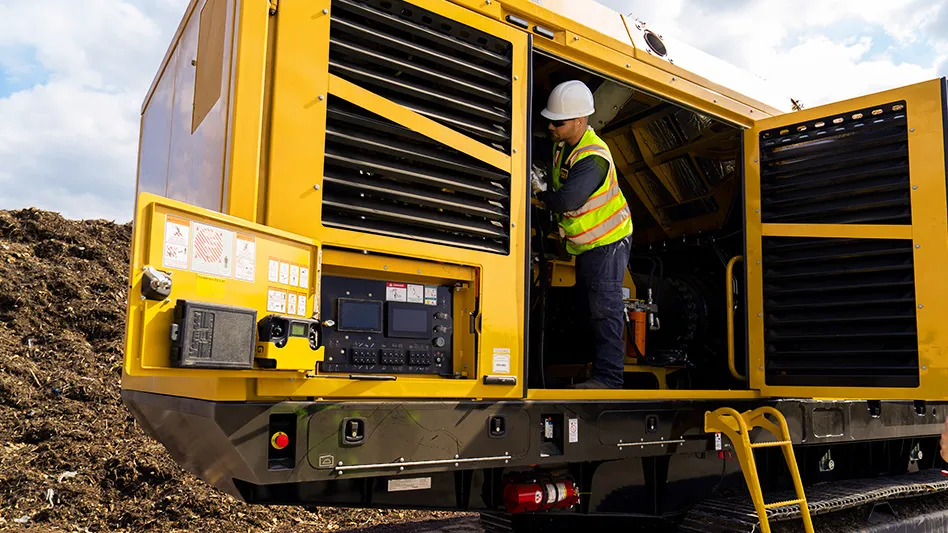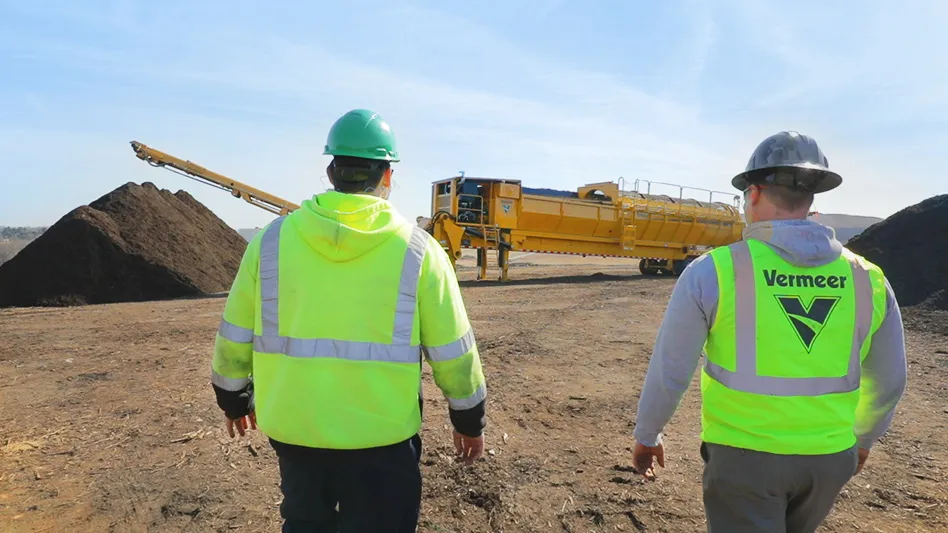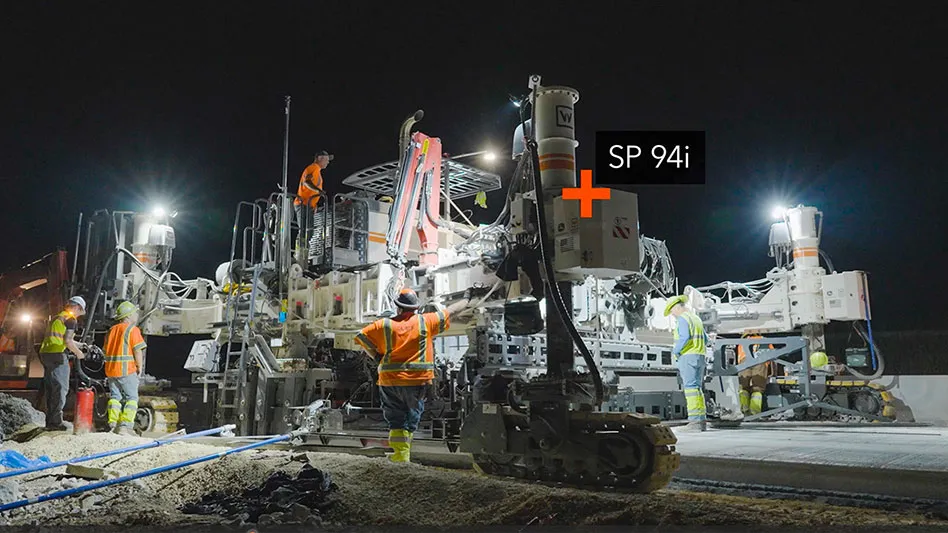
violetkaipa | stock.adobe.com
Steel Dynamics Inc. (SDI), which operates electric arc furnace steel mills and a network of scrap yards through its OmniSource division, has reported second-quarter 2023 net sales of $5.1 billion and net income of $812 million, or $4.81 per diluted share, up from net income of $637 million, or $3.70 per diluted share, in Q1 of 2023. However, on a year-over-year basis, SDI’s net income contracted from $1.2 billion, or $6.44 per diluted share.
The results were in line with the company's mid-June predictions of earnings in the range of $4.78 to $4.82 per diluted share.
Mark D. Millett, chairman and CEO of Fort Wayne, Indiana-based SDI, says higher realized pricing from the company’s steel mill operations drove the sequential improvement in earnings.
“We also achieved strong cash flow from operations of $808 million and strong liquidity of $3.5 billion, while at the same time continuing to invest in our growth and providing strong shareholder distributions,” he says in a news release announcing the company’s earnings. “In recognition of our growth, strong balance sheet profile and consistent free cash flow generation capability, we received upgrades to our investment grade credit designations from two credit rating agencies.”
Millett adds that operating income from SDI’s steel operations was $706 million, which was more than double its first-quarter sequential results, owing to “significant” metal spread expansion as selling values more than offset the moderately higher scrap costs the company encountered during the quarter.
The company says shipments remained steady at 3.2 million tons, with the average external product selling price increasing by $177 per ton sequentially to $1,257 per ton. The average ferrous scrap cost per ton melted at SDI’s steel mills increased $31 per ton sequentially to $444 per ton.
SDI says its Sinton, Texas, Flat Roll Division operated at a utilization rate comparable to the sequential first quarter and achieved positive earnings before interest, taxes, depreciation and amortization (EBITDA) for the recently completed quarter. The company says it expects the Texas division to be operating at an 80 percent utilization rate by the end of 2023.
However, that site began an unplanned outage at its hot mill, SDI announced earlier this month, with its restart expected before July 30. The outage relates to caster shear equipment issues, which occurred July 1. The company plans to continue to operate the cold mill and downstream value-added flat-rolled steel coating lines during the hot mill outage.
“Steel order activity remains solid from the automotive, construction, industrial and energy sectors,” Millett says. “Recent positive data from the steel service center sector points to continued low customer inventory levels, which we believe has abated destocking and will support steel pricing.”
Second-quarter operating income from its metals recycling operations remained steady at $40 million, as increased ferrous shipments totaling 1.5 million gross tons were offset by metal spread compression. Ferrous scrap demand was supported by modestly higher domestic steel production utilization of more than 76 percent in the second quarter of 2023.
The company’s steel fabrication operations achieved historically strong operating income of $462 million in the second quarter of 2023, SDI says, but were below first-quarter results based on metal spread compression as lower realized selling values were combined with steady steel substrate costs and product shipments. SDI says it believes steel joist and deck shipments in the second half of the year will be comparable in volume to those in first half of this year. The company says its order backlog reaches into 2024 with strong forward pricing. In addition, SDI says continued onshoring of manufacturing, combined with the robust U.S. infrastructure and Inflation Reduction Act programs and industrial buildouts, support strong demand in the coming years.
SDI says it also had capital investments of $358 million, paid cash dividends of $72 million and repurchased $380 million of its outstanding common stock, representing 2.2 percent of its outstanding shares, while retaining strong liquidity of $3.5 billion as of June 30.
For the six months ended June 30, SDI’s net income was $1.4 billion, or $8.49 per diluted share, with net sales of $10 billion. For the same period in 2022, SDI reported net income of $2.3 billion, or $12.14 per diluted share, with net sales of $11.8 billion.
The $10 billion in net sales SDI saw in first half of the year represents a decrease of 15 percent from the first half of 2022, while operating income declined 39 percent to $1.9 billion. The company says the lower earnings were driven by metal spread contraction within its steel operations as lower realized product pricing outpaced lower ferrous scrap costs.
First-half 2023 operating income from SDI’s steel operations totaled $1.1 billion compared with $2.3 billion in the first half of 2022. The average first-half 2023 external selling price in its steel operations decreased $382 per ton to $1,167 per ton compared with the first half of 2022, and the average ferrous scrap cost per ton melted at the company’s steel mills decreased $79 per ton to $428 per ton. The steel fabrication platform achieved strong first-half 2023 operating income of $1 billion, SDI says, which is only slightly lower than its record results of $1.1 billion achieved in the same period in 2022.
SDI says it realized cash flow from operations of $1.5 billion in the first half of 2023, invested $585 million, paid cash dividends of $131 million and repurchased $734 million in shares, representing 3.9 percent of its outstanding shares of its common stock, while maintaining strong liquidity.
“We remain confident that market conditions are in place for domestic steel consumption to be solid,” Millett says. “Order entry activity continues to be strong across all of our businesses. We believe North American steel consumption will increase in the coming years, and that demand for lower-carbon emission, U.S.-produced steel products coupled with lower imports will support steel pricing. The continued onshoring of manufacturing businesses, combined with the expectation of significant fixed asset investment to be derived from public funding related to the U.S. Infrastructure, Inflation Reduction Act and Department of Energy programs, will competitively position the domestic steel industry. We believe this will benefit all of our operating platforms, especially our steel and steel fabrication businesses.
“This environment, in combination with our existing and ongoing expansion initiatives, are firm drivers for our continued growth in the coming years,” Millett continues. “We are quickly progressing on our aluminum flat-rolled products mill and are incredibly excited about this meaningful growth opportunity, which is aligned with our existing business and operational expertise. The team has placed orders for critical equipment, and the rolling mill site location in Columbus, Mississippi, is exceptional. We have intentionally grown with our customers’ needs, providing efficient sustainable supply-chain solutions for the highest quality products. Thus far, this has primarily been achieved within the steel industry—however, a significant number of our flat-rolled steel customers are also consumers and processors of aluminum flat-rolled products. We are pleased to further diversify our end markets with plans to supply aluminum flat-rolled products with high recycled content to the countercyclical sustainable beverage can industry, in addition to the automotive and industrial sectors. We believe our unique performance-based operating culture, coupled with our considerable experience in successfully constructing and operating cost-effective, highly profitable flat-rolled steel mills, positions us exceptionally well to execute this strategic opportunity and to deliver strong long-term value creation. Our customers and our people are also incredibly excited for this growth opportunity.”
Latest from Construction & Demolition Recycling
- EPA announces $3B to replace lead service lines
- NWRA honors award recipients during annual breakfast at WasteExpo
- Safe Fleet, ITA Dynamics unveil integrated financial, route management system
- Bateman unveils 210 series orange peel grapple
- Republic reports first quarter growth
- Meridian Waste completes second acquisition of 2024
- NEPA revisions could delay critical infrastructure, ABC says
- Liebherr USA announces new divisional director





